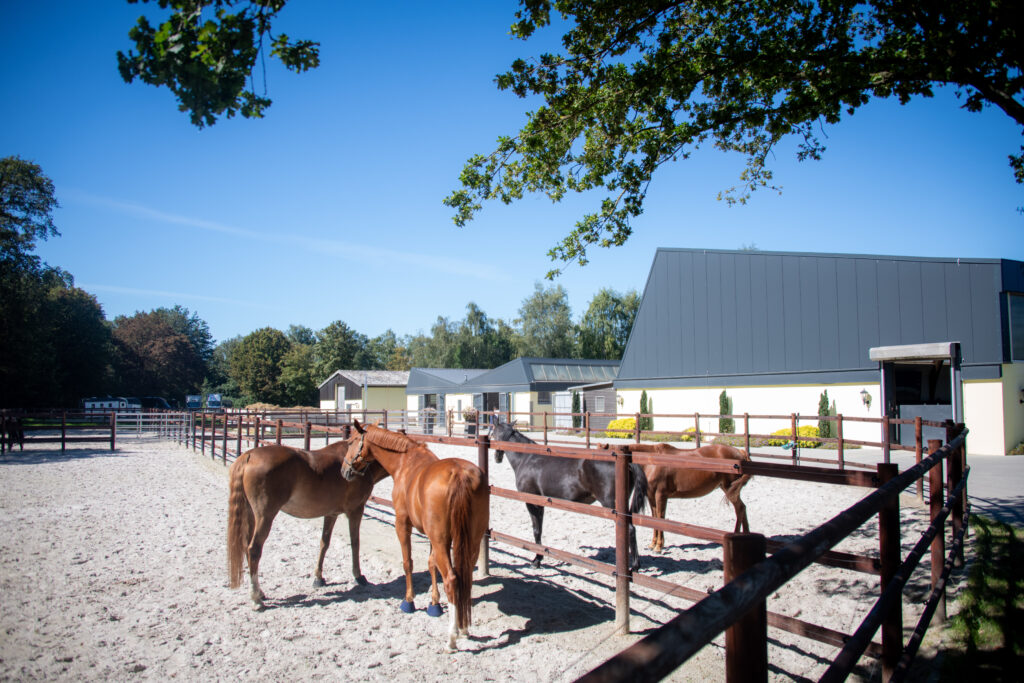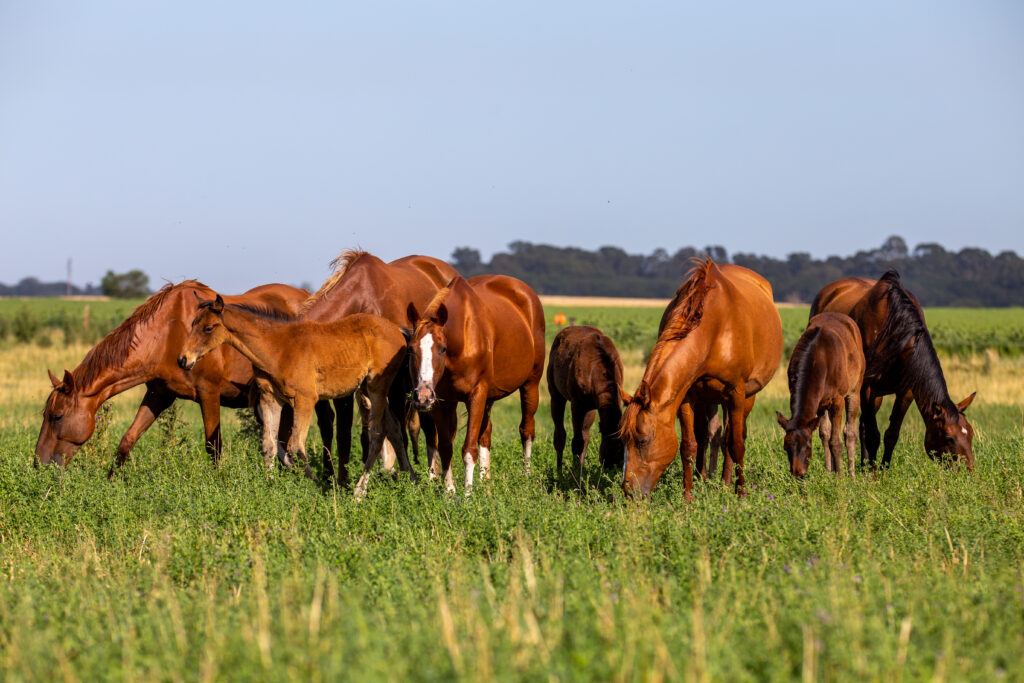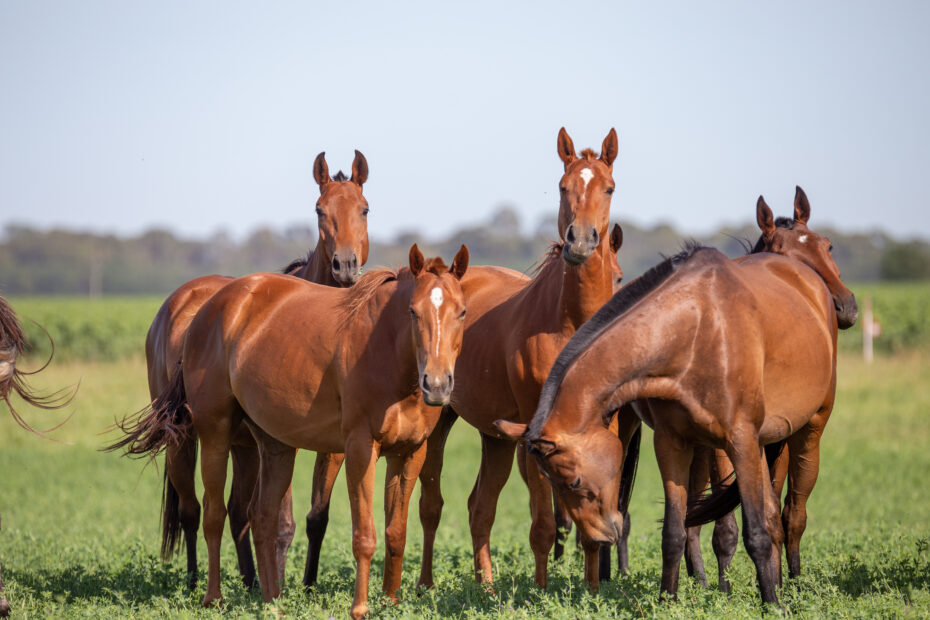As the German eventer, two-time gold medalist and legendary horsewoman, Ingrid Klimke, famously stated: “If I couldn’t turn horses out, I wouldn’t own them.”
What is Horse Turn Out
As with most sports, athletes who compete through long, grueling seasons will benefit from periods of rest and relaxation afterwards. In polo, while taking a break can be beneficial for human athletes, it is fundamental to the health and well-being of the horses. For polo ponies these periods of recovery are called turnout, and involve weeks to months of living on pasture, in compatible groups, with no human-enforced exercise. 1

Reasons and Benefits
Since horses are herd animals, these periods of social interaction and free-range grazing reap huge rewards – mentally as well as physically – from the stresses of long tournament seasons.
Typically, a season may involve 2-3 months of horses living in a stall, being exercised twice daily, and playing 2-3 matches and/or practice games each week. In high-goal polo, a match consists of six, 7 ½ minute chukkers, during which an individual pony may play up to two full chukkers.

The most common injuries to horses in polo relate to the ligaments and tendons on their front legs and can be related to a host of factors including overuse. To minimize the occurrence of such injuries the USPA recently adopted the 50th Chukker Rule, which caps the upper limits of use during a season as participating in no more than fifty chukkers per season.
As social creatures, even while being maintained from stalls, polo ponies have the benefit of exercising in groups (sets) as well as playing on the field with other horses.

For a horse steward (whether groom, player, owner, manager, etc.) there is nothing quite so enjoyable as witnessing a string of polo ponies return home to their farm (or turnout facility) and having their shoes and halters pulled, to be turned out in large pastures to buck and run and roll.
Letting horses be horses for a while, with free-choice grazing in acres of space (anywhere from 2 to 20-acre pastures), is one of the best antidotes to the stressors of a recent tournament season.
1 Shelley Onderdonk DVM, Winning With Horses, Trafalgar Square Books, 2015, p. 161.
Written in collaboration with Adam Snow, Shelley Onderdonk and Lily Brennan.
